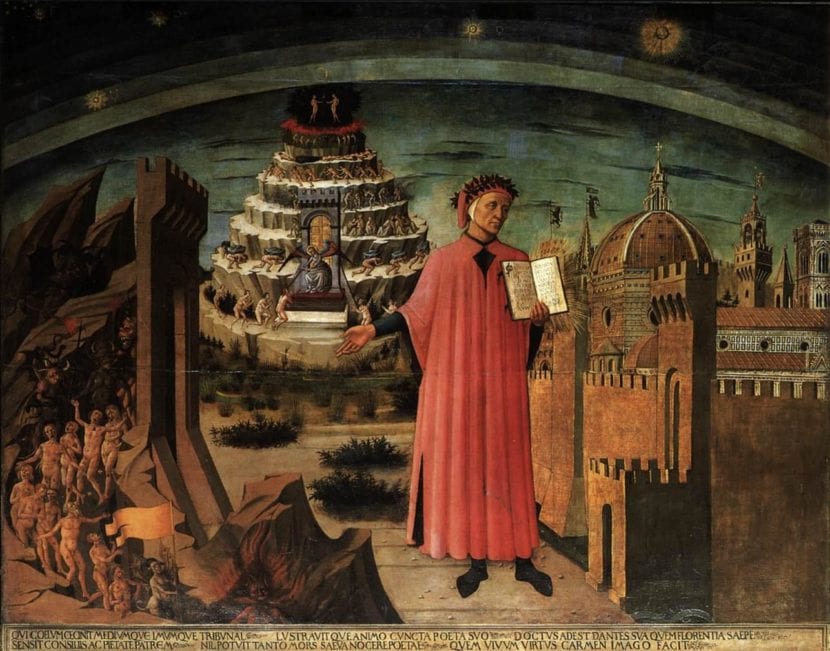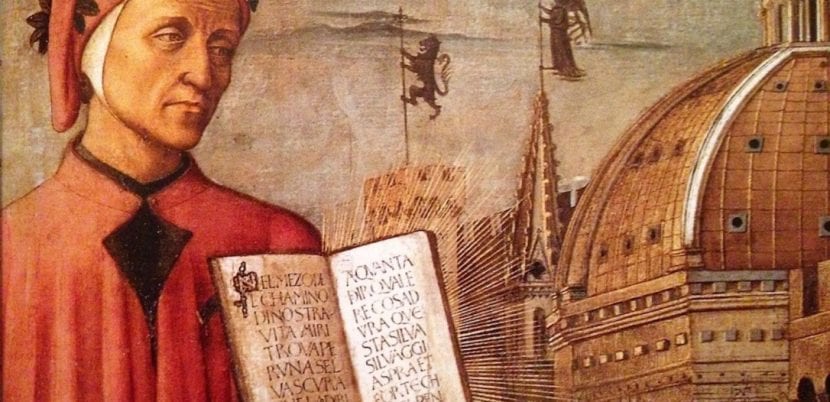
Oil by Dante Alighieri, writer of the Divine Comedy.
The Divine Comedy is a work that clearly exposes the fragility of man, its cracks, everything that clings to its fleeting humanity. However, and in parallel, it also shows what saves him from himself, the spiritual part tied to the divine that allows him to reinvent himself and overcome misadventures. Certainly, a work that should be among our list of books to read.
Dante Alighieri undid himself to bring out his greatest work; this manuscript is, undeniably, what arose from a death, from a catharsis, from its author. Now, to explain this from a more philosophically profuse perspective, let's move on to the next discussion.
Key aspects in Dante's work
There are elements that mark Dante's work and that are undeniable, they do not go unnoticed. The fate of every man on earth, is one. Yes, for this writer everything was already decided on the lives of those who travel this plane. Each one, according to the disposition of the stars at the time of their birth, had their destiny marked.
Hence, the separation of the different spiritual planes becomes the second concept present in Alighieri's work. ANDn this case we speak of hell and heaven and of the ladder that separates both worlds and through which man must pass if he wishes to atone for his sins. Yes, this space is none other than the pulgatory.
Now, the third key point that can be witnessed in Dante's work is that of the free will of men. Yes, each one has a predestination marked by the stars, but, even with that, the being can reveal himself and choose the path that must be followed by his soul, thus conditioning the place to which his soul will move.
Philosophy from a moral and theological perspective
Dante, in his work written in exile, raises an interesting perspective of what medieval morality was from a philosophical point of view. The north of every soul must be, then, to reach the place marked by light, the resting place where the Creator receives everyone to offer real wisdom, true knowledge. However, getting there implies a purification of the already known being.
Whoever denies himself and everything that the flesh means, and seeks the way to God, passing through the tests that are required for such a goal, that being has found enlightenment. Yes, basic medieval theology is very clearly imprinted in the Divine Comedy, and this is reinforced by the social context in which Alighieri must have lived. Another key aspect is that the message of this work goes far beyond the loss of his beloved Beatriz.
The end, then, is to purify oneself and reach God.
Indeed, if something can be clearly seen in Dante's work, it is the need to thumb off sins so that the being can achieve the best version of himself and be able to contemplate God. No one is exempt from faults, no one is incorruptible, there is another clear message in the work. Each being is subjected to tests that can break him at any moment, but the purification will always be there. 
Portrait of Dante Alighieri - Elsubte-raneo.co Life, in itself, is a test, a mirage where man thinks he really sees himself, but, in reality, he is delusional. This is another message from Dante in his work. We see only an assumption, a conditioned reality, but when the Creator is reached, after being purified, then there the true essence can be appreciated.